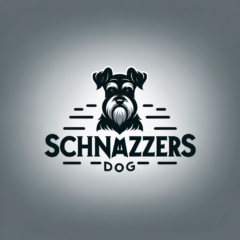- Understanding the unique nutritional requirements of a Giant Schnauzer Lab Mix for optimal health
- How to determine the right portion sizes for your dog based on age, weight, and activity level
- The importance of high-quality protein sources in your Schnauzer Lab Mix’s diet
- Considering the balancing of carbohydrates, fats, and fibers for your dog’s meals
- Guidelines to follow when choosing commercial dog food or preparing home-cooked meals
- Monitoring your dog’s weight and health to adjust the feeding plan as needed
- The role of hydration and the importance of fresh water availability
Maintaining the ideal health and vitality of your Giant Schnauzer Lab Mix hinges on providing them with the appropriate nutrition. This large dog breed, a blend of the robust Giant Schnauzer and the energetic Labrador Retriever, possesses a unique set of dietary needs. As such, a comprehensive Feeding Guide for the Giant Schnauzer Lab Mix is indispensable to any pet owner wishing to ensure their canine companion’s wellness. Optimal nutrition involves more than merely selecting a top-tier dog food; it requires a tailored approach that considers the individual dog’s lifestyle, age, and specific health concerns.
> READ MORE:
Caloric Needs and Portion Sizes
A cornerstone of the Feeding Guide for the Giant Schnauzer Lab Mix involves identifying the precise caloric demands of your pet. These sizable dogs typically necessitate a substantial caloric intake, particularly if they lead an active lifestyle. Nonetheless, it’s imperative to avert the pitfalls of overfeeding, which can culminate in obesity and related health concerns. Establishing the correct portion sizes involves a blend of factors, including the dog’s current weight, age, and energy expenditure.
A pup’s caloric needs will shift throughout their life stages. Puppies, who are in a rapid growth phase, require more calories and essential nutrients to foster proper development. Conversely, adult dogs that are not as active may call for a reduction in calorie intake. Senior dogs, with a tendency toward sedentism, typically need even fewer calories. Regular consultations with your veterinarian can offer insights into modifying feeding regimens as your dog ages.
The Significance of High-Quality Protein
Giant Schnauzer Lab Mixes, with their muscular build and vivacious personalities, require ample protein. Protein is the building block of muscles, and for these dogs, a high-quality protein source should be the centerpiece of their diet. Whether it’s through lean meats like chicken, beef, or fish, or through legumes and eggs for those opting for a non-meat diet, the key is to ensure the protein is easily digestible and nutritious.

Balance of Carbs, Fats, and Fibers
Your Giant Schnauzer Lab Mix’s diet should also contain balanced portions of carbohydrates, fats, and fibers. While dogs do not have an explicit need for carbohydrates, they can serve as an additional energy source. Fats are vital for energy, especially for active dogs, and help with the absorption of particular vitamins. Fiber, although not digestible, is essential for maintaining good digestive health. The trick is to source these nutrients from high-quality, whole-food ingredients which provide optimal health benefits while minimizing filler substances that can lead to weight gain or digestive upsets.
Choosing the Right Food
When it comes to selecting the right commercial food, it’s essential to read the labels and pick products that meet AAFCO guidelines. Foods that feature meat as the first ingredient are often recommended. Grain-free options are viable as well, particularly if your dog displays signs of grain allergies or intolerances.
For those who prefer to cook meals for their dogs at home, the same nutritional principles apply. Consult with a veterinary nutritionist to ensure that home-cooked diets are balanced with the nutrients necessary for your Schnauzer Lab Mix’s health. Remember, certain human foods can be toxic to dogs, so it’s essential to be knowledgeable about safe ingredients.
Monitoring Your Dog’s Health
Frequent observation and weight checks are beneficial in maintaining your Schnauzer Lab Mix’s optimal health. Sudden weight gain or loss can indicate a need for dietary adjustments. Additionally, your dog’s coat condition, energy levels, and stool quality can serve as indicators of their overall health and whether their diet needs tweaking.
Hydration and Water Intake
An often underemphasized aspect of the Feeding Guide for the Giant Schnauzer Lab Mix is the role of hydration. Clean, fresh water should be continually accessible to your dog. Adequate water is vital for digestion, temperature regulation, and overall bodily functions, especially for a large breed with significant water turnover.
In conclusion, mastering Optimal Nutrition and the Feeding Guide for the Giant Schnaguer entails a commitment to understanding and catering to your distinct companion’s dietary needs. With vigilance and incumbent adaptations to meet the evolving needs of your Schnauzer Lab Mix, you can ensure a foundation for a long, healthy, and joyous life together.
